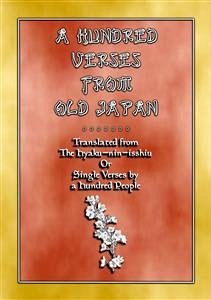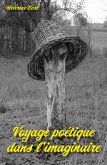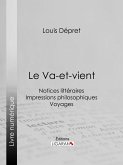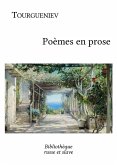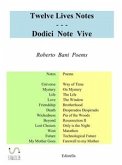The Hyaku-nin-isshiu, or 'Single Verses by a Hundred People', were collected together in Japan during A.D. 1235. These have been penned in the Tanka style, which has five lines and thirty-one syllables, arranged 5-7-5-7-7 which is an unusual metre for Western ears. They range from about the year A.D. 670, and have been placed in approximate chronological order.The Collection consists almost entirely of what the editor calls picture-poems and love-poems, intended to bring before the mind's eye some well-known scene in nature. It is marvellous what images are sketches in the mind’s eye within thirty-one syllables.Each poem is accompanied by a pen and ink thumbnail sketches and explanatory notes (where they have been available). Some sketches show the cherry blossoms which are doomed to fall, the dewdrops scattered by the wind, the mournful cry of the wild deer on the mountains, the dying crimson of the fallen maple leaves, the weird sadness of the cuckoo singing in the moonlight, or the loneliness of the recluse in the mountain wilds. While those verses which appear to be of a more cheerful type are rather of the nature of the 'Japanese smile', described by Lafcadio Hearn as a facial mask adopted to hide the real feelings.Japanese poetry differs very largely from anything we are used to in the West. It has very little rhyme or alliteration, and little, if any, rhythm, as we understand it.10% of the net sale will be donated to charities. YESTERDAY'S BOOKS for TODAY’S CHARITIES============KEYWORDS/TAGS - a hundred verses from old japan, translation, Hyaku-nin-isshiu, Single Verses, Hundred People, collected A.D. 1235, before the Norman Conquest, advanced culture, Japan, ancient poetry, love poems, picture poems, mind's eye, nature scenes, marvellous, thumbnail sketches, cherry blossom, fall,dewdrops, wind, mournful cry, wild deer, mountains, dying crimson, fallen, maple leaves, weird sadness, cuckoo, singing, moonlight, loneliness, recluse, wilds, Japanese smile, Japanese poetry, poet, rhyme, alliteration, Tanka poetry, thirty-one syllables, 31 syllables, five lines, 5 lines, 5-7-5-7-7, metre, Western ears,8-6-8-6-6, Tenchi Tennō, Jitō Tenno, Kaki-No-Moto No Hitomaro, Yamabe No Akahito, Saru Maru Taiu, Chū-Nagon Yakamochi, Abe No Nakamaro, Kizen Hōshi, Ono No Komachi, Semi Maru, Sangi Takamura, Sōjō Henjō, Yōzei In,Kawara No Sadaijin, Kwōkō Tennō, Chū-Nagon Ariwara No Yuki-Hira, Ariwara No Nari-Hira Ason, Fujiwara No Toshi-Yuki Ason, Ise,Moto-Yoshi Shinnō, Sosei Hōshi, Bunya No Yasuhide, Ōye No Chisato, Kwan-Ke,Sanjō Udaijin, Tei-Shin Kō, Chū-Nagon Kanesuke, Minamoto No Mune-Yuki Ason, Ōshi-Kōchi No Mitsune, Nibu No Tadamine, Saka-No-Uye No Korenori, Harumichi No Tsuraki, Kino Tomonori, Fujiwara No Oki-Kaze, Kino Tsura-Yuki, Kiyowara No Fuka-Yabu, Bunya No Asayasu, Ukon,Sangi Hitoshi, Taira No Kanemori, Nibu No Tadami, Kiyowara No Moto-Suke, Chū-Nagon Yatsu-Tada, Chū-Nagon Asa-Tada, Ken-Toku Ko, Sō Ne-Yoshi-Tada, Ye-Kei Hōshi, Minamoto No Shige-Yuki, Ōnakatomi No Yoshi-Nobu Ason, Fujiwara No Yoshitaka, Fujiwara No Sanekata Ason, Michi-Nobu Ason, Udaishō Michi-Tsuna No Haha, Gidō-Sanshi No Haha, Dai-Nagon Kintō, Izumi Shikibu,Murasaki Shikibu, Daini No Sammi, Akazome Emon, Ko-Shikibu No Naishi, Ise No Taiu, Sei Shō-Nagon, Sakyō Taiu Michimasa, Gon Chū-Nagon Sada-Yori, Sagami,Daisōjō Gyōson, Suwo No Naishi, Sanjō In, Nō-In Hoshi, Riyō-Zen Hoshi, Dai-Nagon, Tsune-Nobu, Yūshi Naishinnō Ke Kii, Gon Chū-Nagon Masafusa, Minamoto No Toshi-Yori Ason, Fujiwara No Mototoshi, Hōshō-Ji Nyūdō Saki No Kwambaku Daijōdaijin, Sutoku In, Minamoto No Kanemasa, Sakyō No Taiu Aki-Suke, Taiken Mon-In Horikawa, Go Tokudai-Ji Sadaijin, Dō-In Hoshi, Kwō-Tai-Kōgū No Taiu Toshi-Nari, Fujiwara No Kiyo-Suke Ason, Shun-Ye Hōshi, Saigyō Hōshi, Jaku-Ren Hōshi, Kwōka Mon-In No Betto, Shikishi Naishinnō,

